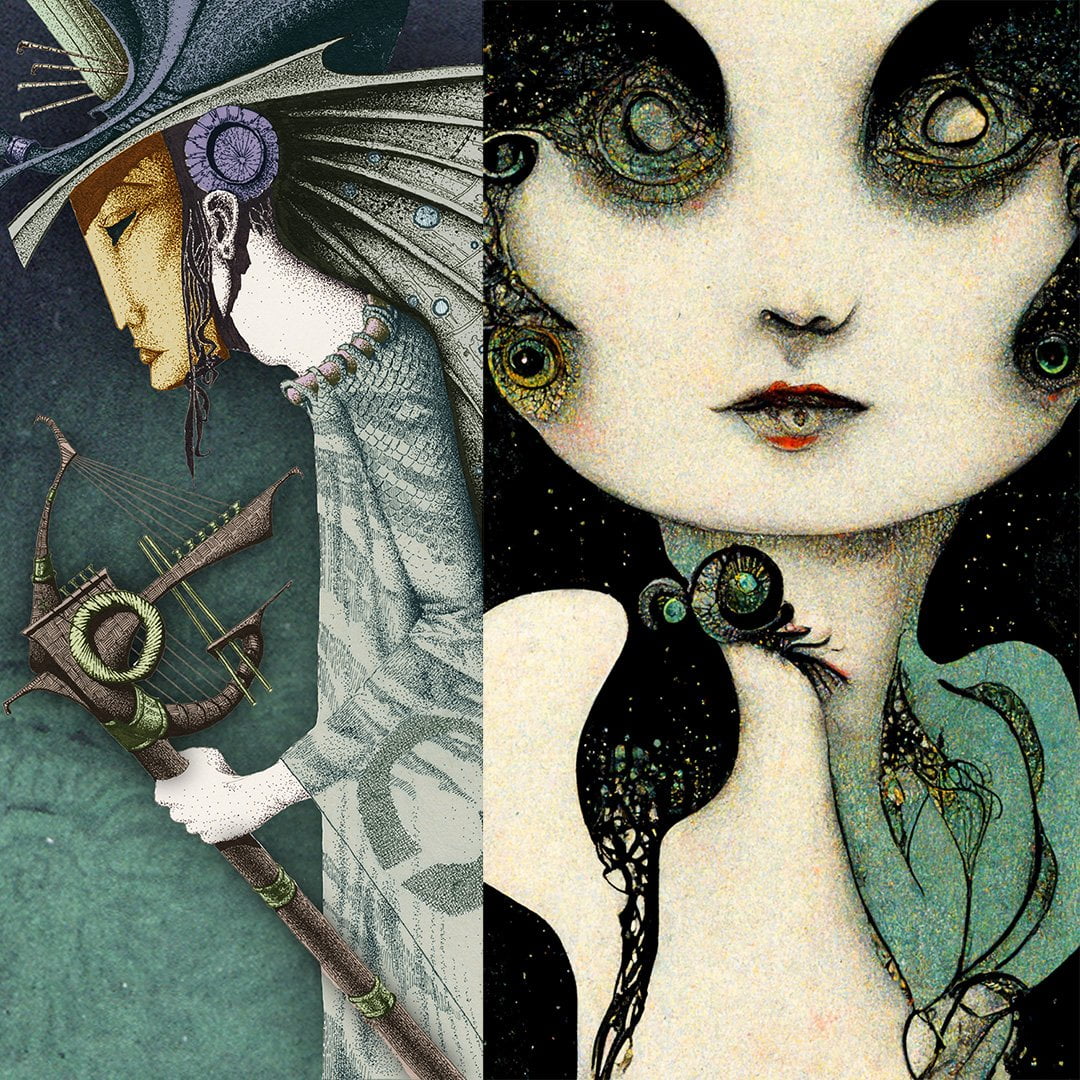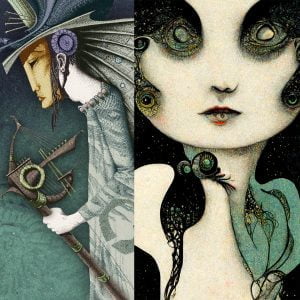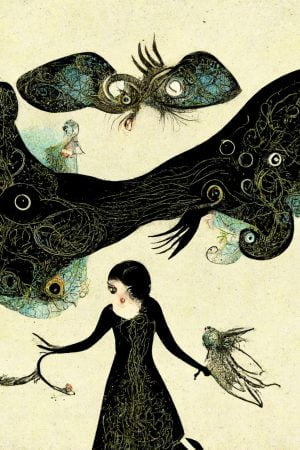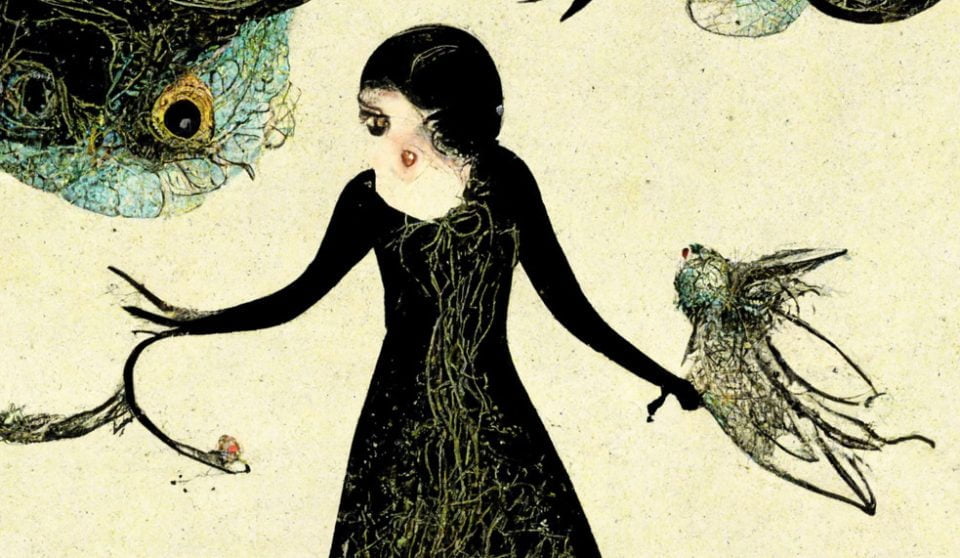mindweavers and power looms


When Deep Blue defeated Gary Kasparov, though computers had been closing in on Chess for some time, it still came as a shock. In retrospect, we realised that our mistake had been in believing that Chess was a peak of human intellectual achievement; in truth, the reason Chess is hard for us is why it is trivial for computers: the ability to explore deeply the branching possibilities ahead.
I remember drawing comfort from how badly computers played the ancient Chinese game, Go: even the most powerful computers could barely overcome amateurs. Unlike in Chess, the possible moves in Go branch so thickly that even the brute processing power of the fastest computer was quickly overwhelmed. Human players, citing ‘feel’ and ‘intuition’, easily defeated their silicon opponents.
When AlphaGo, an AI ‘deep learning’ system defeated Lee Sedol, one of the strongest players in Go history, I was not the only one who shuddered as another wall of human intellectual exceptionalism came crashing down. In the intervening years, the rapid advances of ‘deep learning’ systems—designed somewhat analogously to mimic how we imagine networks of neurones in our brains to work—have encroached on many areas that once we considered the unique preserve of our intellect.

A few weeks back, Midjourney—another ‘deep learning’ system—erupted into the lives of many artists. When Midjourney is fed image and text ‘prompts’, it generates images that can be intoxicating in their beauty and variety, and it does so in seconds. As we have watched other computer algorithms encroach on so many human professions, I along with—I imagine—most creatives, had felt relatively safe within our enclave: sure, many of us had been using computers to make our art, but these were merely tools—Midjourney (and there are many other such AI image generators out there now) has burst through onto our hallowed ground to compete directly with us: clearly, it is making images at least as good as those produced by many commercial artists and in a fraction of the time, for a fraction of the cost. Even as those of us, who are predominantly non-visual artists, attempted to regroup behind the walls of our sub-enclaves, people were pointing out that AI systems are already composing music at least as well as humans can and that, soon, even books and poetry must fall. The machines are coming for us all.
At this point, I wish to draw a line behind which we creatives can make a stand: irrespective of how powerful these AIs become, I don’t believe that they can master everything we can.
Consider a simple narrative. Narratives naturally contain chains of causal events—these require a writer to understand the world enough to know why it is that one thing causes another. To make the characters in a story speak and act, a storyteller must ‘inhabit’ each one as if he were an actor in a play—this requires a writer to understand what it is like to be a sentient being. To understand something, you need to know what it is you know; you need to be conscious. Whatever else computer systems have achieved, they are not conscious.
Let us return to Midjourney for a moment. An image is more forgiving than a narrative—mostly, it depicts an instant in time, thus naturally excluding causality, and it only depicts the external appearance of sentient beings, not directly their thought processes. Nevertheless, even an image often requires an understanding of what something is to be able to depict it. In the image below (one of the first that emerged from my Midjourney adventure, from only the prompt of an image I had drawn myself) it can be seen that Midjourney does not understand what a face is, or hands.

It is easy to ascribe to computer systems some kind of understanding, after all, many of the things these machines are now doing, in our lived experience, only sentient beings have been able to do. The recent example of the employee who became convinced that the Google’s AI chatbot he was engaging with was sentient, is a salutary example; this despite the software doing nothing more than relating words to each other, so that it was as if he were conversing with a person who had had all of their brain removed except for some of its language centres.
I propose that consciousness is the citadel that remains to us inviolate by AI systems, and that this citadel will stand and fall on whether and when machine consciousness becomes possible. Despite what many say, no one knows why it is that the meat in our heads generates consciousness. The claim that we are moving towards machine consciousness is based on the belief that our brain is a computer. This is nothing more than a metaphor—before we had computers, there were people who believed our brains might be complex clockwork. Without knowing what causes consciousness, the techno-optimists out there wave their hands, saying that when computers become complex and fast enough, consciousness will ’emerge’ spontaneously. This is not science but faith. I believe there are good reasons why machine consciousness may never be possible; be that as it may, what is certain is that machine consciousness is not here today.
What then is Midjourney and its ilk? They may well be a amplifiers for human creativity. As chess players have enhanced their play with the aid of computers, so artists may enhance their image making by using systems such as Midjourney. These AIs may perhaps even enable artists to explore new vistas that they have not been aware of hitherto.
The example of AlphaGo is instructive. As it explored the restricted space of a Go board and its simple rules, unencumbered by human teaching, it made a discovery that humans, over three thousand years of play, had never imagined. All Go players who have ever lived had inhabited a single peak of possible play, the climbing of which led to excellence. Descending from this peak, the quality of their play diminished, so that no one had ever thought to venture far enough across the desert of this poor play to discover the neighbouring peak, undreamed of, that rises to even loftier heights.
Unlike the fisherman who inadvertently released a vengeful djinn from the prison of its bottle, we are unlikely to be able to trick our AIs back into it; instead, like Aladdin, we must risk asking our djinn to use its dangerous, prodigious powers to fulfil our wishes.